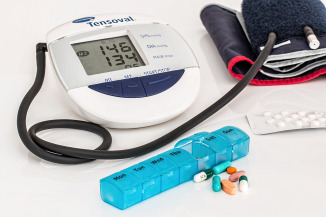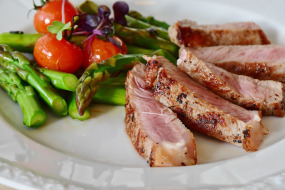Keto Diet Guide: Eating Natural with DoctorMindBody.com
Embarking on a ketogenic diet involves more than just trimming carbs; it's a lifestyle shift that can lead to significant health benefits when done correctly. At DoctorMindBody.com, we emphasize the importance of consuming natural, non-bioengineered foods to ensure your body receives the highest quality nutrients. Here's a comprehensive guide on how to properly follow the keto diet, including what foods to eat, a sample shopping list, a weekly diet plan, and some general health advice.
What is the Keto Diet?
The ketogenic diet is a low-carb, high-fat diet that involves drastically reducing carbohydrate intake and replacing it with fat. This reduction in carbs puts your body into a metabolic state called ketosis, where fat from your diet and your body is burned for energy.
Benefits of a Natural Keto Diet
Opting for natural, non-bioengineered foods is crucial for those who want to avoid genetically modified organisms (GMOs) and promote a more sustainable and ethical approach to eating. Non-bioengineered foods are often perceived as safer, more nutritious, and environmentally friendly.
Foods to Eat
On a keto diet, your focus should be on high-fat, low-carbohydrate foods. Here are some non-bioengineered food options:
Meats: Grass-fed beef, pasture-raised poultry, pork, and lamb.
Fish and Seafood: Wild-caught fish like salmon, mackerel, and sardines.
Full-Fat Dairy: Organic cheese, butter, and cream.
Eggs: Free-range or organic.
Nuts and Seeds: Almonds, walnuts, flaxseeds, pumpkin seeds.
Healthy Oils: Coconut oil, extra virgin olive oil, avocado oil.
Vegetables: Leafy greens, broccoli, cauliflower, and other low-carb options.
Avocados: Whole avocados can be a great source of fat and fiber.
Berries: Strawberries, raspberries, and blackberries in moderation.
Shopping List
To help you get started, here's a simple shopping list:
Grass-fed beef or lamb
Free-range organic chicken
Wild-caught salmon
Organic full-fat cheese and butter
Free-range or organic eggs
Coconut oil and extra virgin olive oil
Almonds and walnuts
Organic spinach, kale, and broccoli
Avocados
Organic strawberries and raspberries
Weekly Diet Plan
Here's a sample one-week diet plan:
Monday:
Breakfast: Scrambled eggs with spinach and mushrooms cooked in butter.
Lunch: Chicken salad with olive oil dressing.
Dinner: Grilled salmon with a side of asparagus.
Tuesday:
Breakfast: Full-fat yogurt with raspberries and flaxseed.
Lunch: Beef stir-fry with mixed vegetables in coconut oil.
Dinner: Pork chops with cauliflower mash.
Wednesday:
Breakfast: Keto smoothie with avocado, coconut milk, and a handful of berries.
Lunch: Tuna salad stuffed avocados.
Dinner: Roast chicken with cream sauce and broccoli.
Thursday through Sunday: Continue with similar patterns, alternating proteins and vegetables to maintain variety.
Health Advice
Stay Hydrated: Consume plenty of water throughout the day.
Electrolyte Balance: Ensure adequate intake of sodium, potassium, and magnesium to avoid the "keto flu."
Monitor Protein Intake: Too much protein can kick you out of ketosis.
Prepare for Change: The initial switch to keto can be challenging. Be prepared for changes in energy levels and mood.
Consult Health Professionals: Especially if you have underlying health conditions.
Following the ketogenic diet with an emphasis on natural, non-bioengineered foods can not only help you achieve and maintain ketosis but also support a healthier planet. At DoctorMindBody.com, we're here to guide you through each step of your health journey, ensuring you make sustainable and health-promoting decisions along the way.







